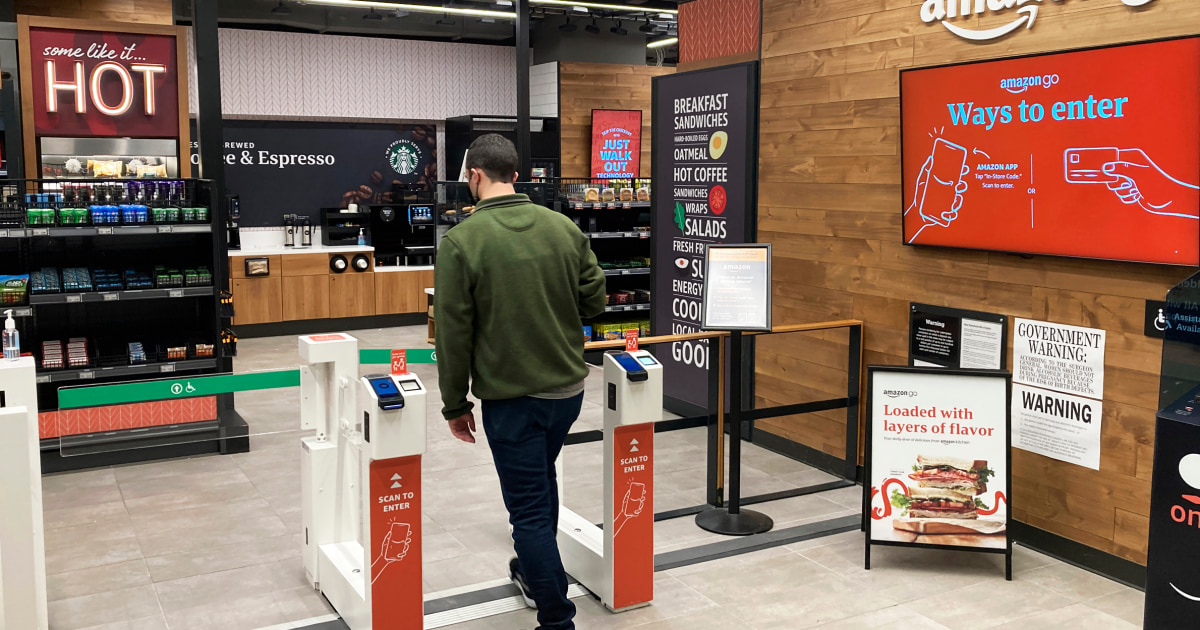Amazon failed to alert its New York City customers that they were being monitored by facial recognition technology, a lawsuit filed Thursday alleges.
in a class action lawsuitLawyers for Alfredo Perez said the company did not tell visitors to Amazon Go convenience stores that the technology was in use. thanks to a law 2021New York is the only major US city that requires businesses to post signs if they are tracking customers’ biometric information, such as facial scans or fingerprints.
Amazon introduced its Go stores in 2018, promising that customers could walk in, grab what they wanted from the shelves, and leave without paying. The company monitors the actions of visitors and debits their accounts when they leave the store. It opened its first New York location the following year and has 10 stores, all in Manhattan, according to its website.
The lawsuit says Amazon recently put up signs informing New York customers about the use of facial recognition technology, more than a year after the disclosure law went into effect. Amazon did not immediately respond to a request for comment.
For Amazon Go to successfully track its customers and the items they take, it has to continually monitor their bodies, the lawsuit says.
“To make this ‘Just Walk Out’ technology possible, Amazon Go stores constantly collect and use customers’ biometric identifier information, including scanning the palms of some customers to identify them and applying machine vision, deep learning algorithms. and sensor fusion. that measure each customer’s body shape and size to identify customers, track where they move in stores, and determine what they’ve purchased,” she says.
Perez is represented by the Surveillance Technology Oversight Project, a legal advocacy group dedicated to New York privacy protections.
“It means that even a global tech giant can’t ignore local privacy laws,” Albert Cahn, the project’s director, said in a text message. “While we await long overdue federal privacy laws, it shows there is much local governments can do to protect their residents.”

